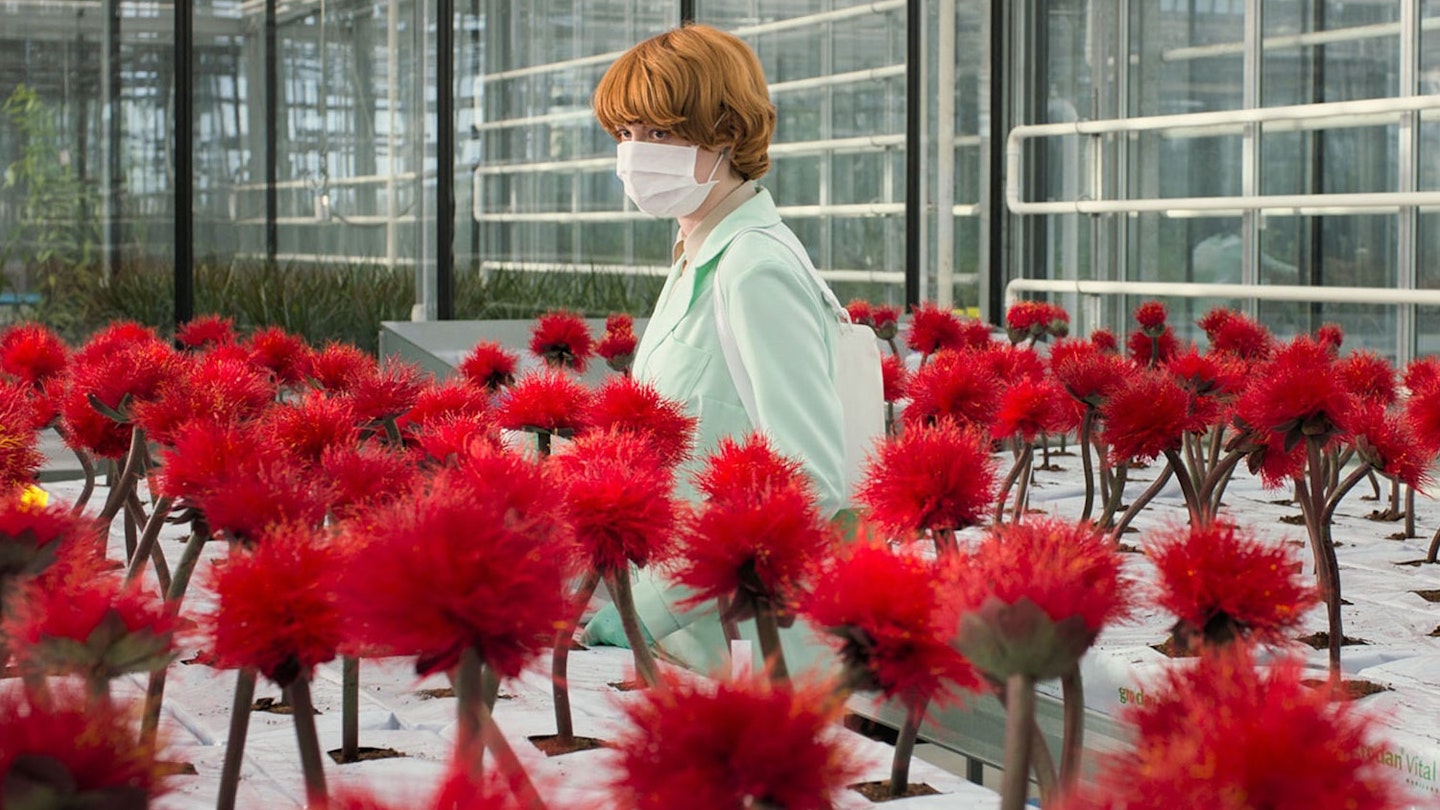Filmmaker Jessica Hausner taps into the commodification of mental health with this densely stylised yet subtle sci-fi horror that feels painfully close to today’s reality. Beecham — firing on all cylinders after her abrasive performance in London-set indie Daphne — plays Alice, a reserved, gifted plant designer whose latest creation has the ability to lift its owner’s mood.
“You’ll love your plant like your own child,” is the promise, an enticing and well-speculated prospect to a society that now not only has an open dialogue about mental health issues but also an entire industry dedicated to easing the pain that comes with them. The plant — neon red with thin petals that form a globe-like flower — also looks like an Instagram craze-in-waiting; an attractive pet-like product with coveted abilities.

With the help of her team — notably Ben Whishaw’s creepy wannabe love interest — Alice maintains her eerie botanical army in a cool, peppermint-coloured lab, stealing one away for Joe (Connor) to look after at home, which is named Little Joe as an indication of their easy bond.
What happens when Joe ingests the pollen isn’t shocking; there is no body horror or violence, just a suspicious shift in mood that only Alice seems concerned about initially. Such irregularities become increasingly notable in Joe, a number of test patients and Bella (Kerry Fox), Alice’s beleaguered colleague, captured with a sense of dread under Hausner’s purposefully glacial yet vividly drawn direction.
This diluted sense of menace would perhaps feel dull were it not for Beecham, whose nuanced take on motherhood and ambition is more haunting than any of the film’s intentional tropes. Like a lot of modern horror, what makes Little Joe threatening is how entirely feasible it could be, but its loyalty to an albeit handsomely captured reality also feels in part like its undoing.
